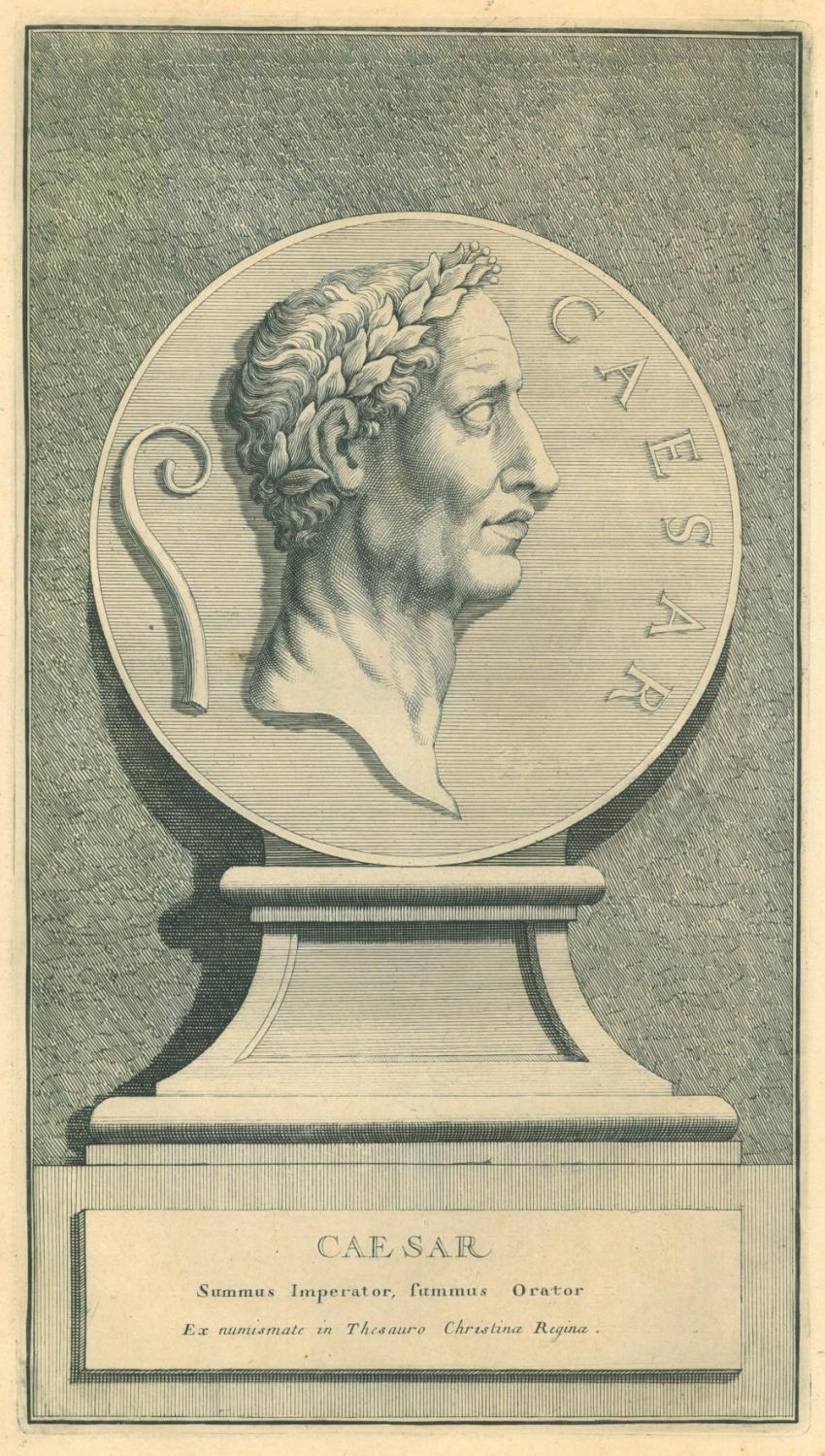

Returning to Italy, he was told that Caesar in his will had adopted him as his son and had made him his chief personal heir. He was at Apollonia (now in Albania) completing his academic and military studies when, in 44 bce, he learned that Julius Caesar had been murdered. In 46 bce he accompanied Caesar, now dictator, in his triumphal procession after his victory in Africa over his opponents in the Civil War and in the following year, in spite of ill health, he joined the dictator in Spain.

Three or four years later he received the coveted membership of the board of priests ( pontifices). At age 12 he made his debut by delivering the funeral speech for his grandmother Julia. Gaius Octavius’s mother, Atia, was the daughter of Julia, the sister of Julius Caesar, and it was Caesar who launched the young Octavius in Roman public life. His father, who died in 59 bce, had been the first of the family to become a Roman senator and was elected to the high annual office of the praetorship, which ranked second in the political hierarchy to the consulship. Gaius Octavius was of a prosperous family that had long been settled at Velitrae (Velletri), southeast of Rome. SpaceNext50 Britannica presents SpaceNext50, From the race to the Moon to space stewardship, we explore a wide range of subjects that feed our curiosity about space!.Learn about the major environmental problems facing our planet and what can be done about them! Saving Earth Britannica Presents Earth’s To-Do List for the 21st Century.Britannica Beyond We’ve created a new place where questions are at the center of learning.100 Women Britannica celebrates the centennial of the Nineteenth Amendment, highlighting suffragists and history-making politicians.
#Gaius julius caesar original writings how to
COVID-19 Portal While this global health crisis continues to evolve, it can be useful to look to past pandemics to better understand how to respond today.Student Portal Britannica is the ultimate student resource for key school subjects like history, government, literature, and more.Demystified Videos In Demystified, Britannica has all the answers to your burning questions.This Time in History In these videos, find out what happened this month (or any month!) in history.#WTFact Videos In #WTFact Britannica shares some of the most bizarre facts we can find.Britannica Classics Check out these retro videos from Encyclopedia Britannica’s archives.Britannica Explains In these videos, Britannica explains a variety of topics and answers frequently asked questions.
#Gaius julius caesar original writings plus
est la meilleure et la plus recherchée’) Graesse, II, 9 Renouard, 142:10 (‘la meilleure edition de cette traduction’).

This accurate edition retains the famous set of illustrations of the 1513 Aldine edition of the original Latin text as well as the additional map of the Iberian peninsula taken from the Giunta edition of 1514 (cf. This transposition into the Italian vernacular was made by Agostino Ortica Della Porta, an early sixteenth-century poet from Genoa who also translated Sallust’s works. The first vernacular translation appeared, for obvious reasons, in France and was rapidly followed by a Spanish and German edition. Caesar’s own account of his military campaigns in Gaul, Spain, Africa, Egypt and the Civil Wars have been a perennial textbook to learn a terse and lively Latin but also proved very successful as a reading for a broader non-learned audience. The best edition of this first Italian translation of a landmark in Western literature, first published in 1512. a few tiny wormholes, mainly at spine and rear early bookplate scratched off front pastedown, early initials ‘LB’ on title. A good copy in contemporary vellum, recased probably in C19th, contemporary title inked on lower edge, others on spine, a. 54, not affecting legibility original paper flaws touching a few letters on f. Italic letter, large printer’s device on title and final verso, 5 full-page woodcut illustrations and two double-page maps very light, mainly marginal foxing and occasional small damsptain to gutter or margins, minor stain to upper edge of ff. CAESAR, Gaius Julius Commentarii tradotti di latino in volgar lingua Venice, Paolo Manuzio, 1547Ĩvo, ff.


 0 kommentar(er)
0 kommentar(er)
